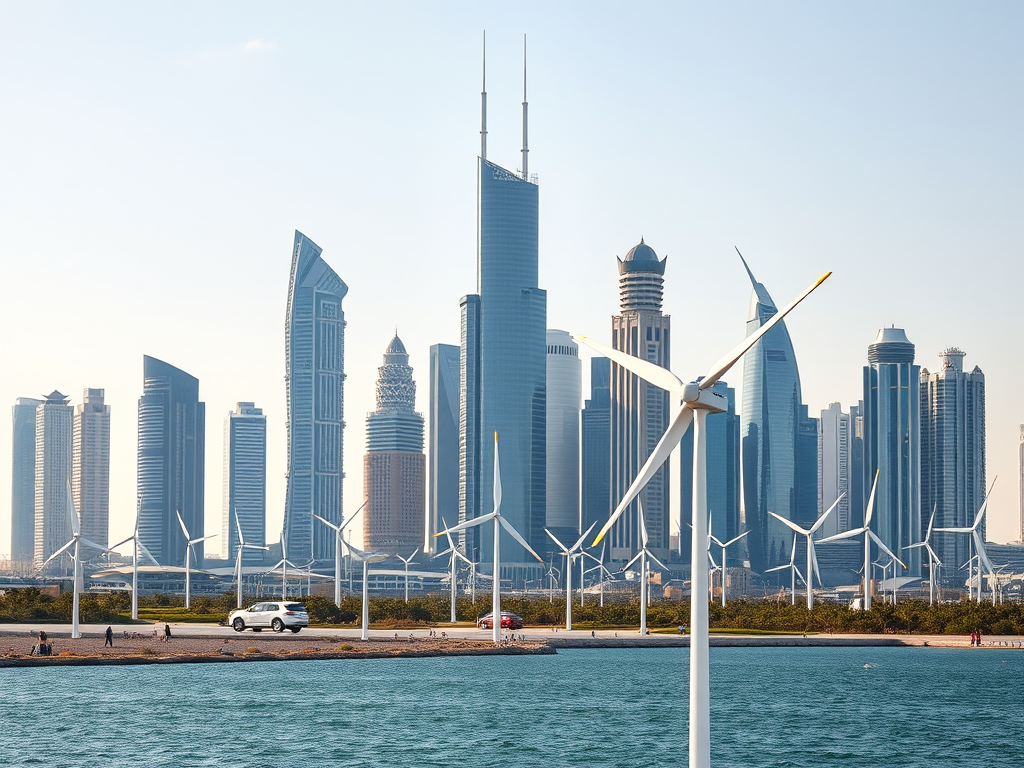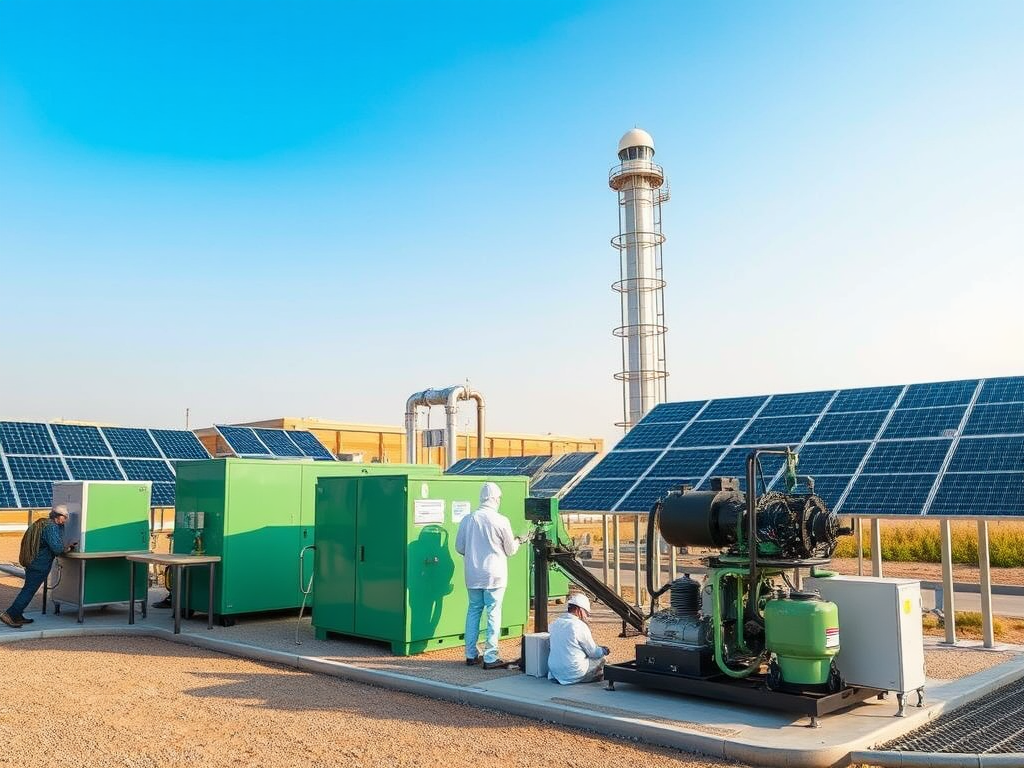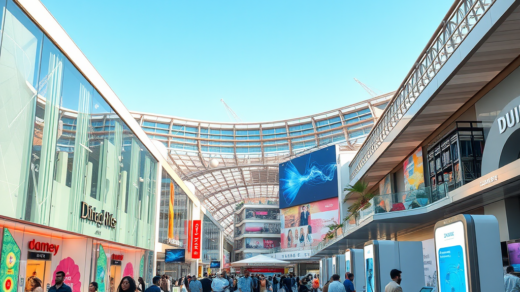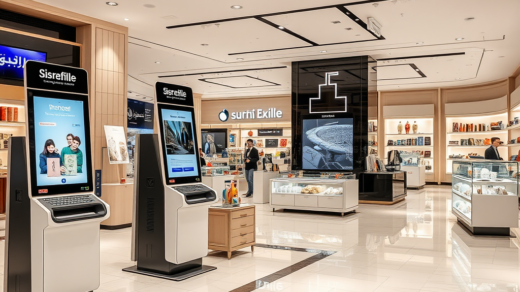Dubai is rapidly establishing itself as a global leader in renewable energy, thanks to its ambitious vision for a sustainable future. The city aims to not only meet its energy needs through renewable sources but also to export surplus energy to neighboring countries and beyond. This article explores the potential of Dubai’s renewable energy export hubs, how they can reshape energy consumption in the region, and bolster economic growth. We will delve into the current initiatives taken to harness renewable resources and the prospects that lie ahead for this groundbreaking development.
Dubai’s Renewable Energy Landscape

Dubai is known for its innovative, forward-thinking approach to energy. In recent years, it has made significant strides in developing various renewable energy sources, primarily solar and wind power. Currently, the emirate boasts one of the world’s largest solar parks, the Mohammed bin Rashid Al Maktoum Solar Park, aiming for an astonishing capacity of 5,000 megawatts by 2030. This ambitious project exemplifies Dubai’s commitment to sustainability and its intention to diversify its energy portfolio. Other initiatives include investments in wind farms and advancements in energy efficiency technologies.
In addition to solar and wind energy, Dubai is exploring the integration of hydrogen as a key renewable resource. The city’s strategic location makes it an ideal hub for producing green hydrogen, which can be transported and sold globally. The government’s support for these initiatives highlights the potential of building a robust renewable energy framework that not only caters to domestic demands but also positions Dubai as a key player in the international renewable energy market.
The Strategic Location of Dubai for Renewable Energy Export

Dubai’s geographic proximity to emerging markets in Asia, Europe, and Africa puts it in a prime position to capitalize on renewable energy exports. The city’s infrastructure allows for efficient transit routes for energy transportation, whether through power grids or energy carrier technologies such as hydrogen. Additionally, the Free Trade Zones enhance trade benefits, making it attractive for international partnerships and collaborations. With ongoing investments in smart grids and energy storage, the potential for Dubai to emerge as a renewable energy export hub is substantial.
Several factors contribute to Dubai’s potential as a leading renewable energy exporter. Here are some of the most significant elements:
- Government Support: The UAE government has implemented policies and initiatives aimed at promoting renewable energy investments.
- Technological Investments: Continuous advancements in solar and energy storage technologies position Dubai as a technologically advanced market.
- Financial Incentives: Attractive financing options and incentives for renewable energy projects encourage local and international investments.
- International Partnerships: Collaborations with global energy leaders can enhance knowledge transfer and resource sharing.
- Public Awareness: Increased awareness and demand for sustainable energy solutions among consumers contribute to market growth.
Challenges and Considerations
Despite its significant potential, the journey toward becoming a renewable energy export hub is not without challenges. One of the most pressing issues is balancing supply and demand, especially during periods of fluctuating energy production from renewable sources. Moreover, ensuring the infrastructure is capable of sustaining large-scale energy exports requires substantial investment and development. Regulatory frameworks must also evolve to facilitate easier trade agreements and international collaborations.
Additionally, research into energy transfer technologies, such as hydrogen shipping and storage, will be crucial for Dubai to efficiently export its renewable resources. Addressing these challenges will require a concerted effort from both public and private sectors, along with ongoing support from international partners. A collaborative approach could pave the way for overcoming these hurdles, ensuring that Dubai truly harnesses its potential as a renewable energy powerhouse.
Conclusion
Dubai’s aspirations to create renewable energy export hubs are a testament to its commitment to sustainability and innovation. With a blend of strategic location, government support, technological advancements, and international partnerships, the city is well-positioned to emerge as a leader in renewable energy exports. However, overcoming the existing challenges will be vital for realizing this potential. As the world shifts its focus toward sustainable energy solutions, Dubai stands at the forefront, ready to influence international energy dynamics.
Frequently Asked Questions
1. What types of renewable energy is Dubai focusing on?
Dubai is primarily focusing on solar and wind energy, along with exploring the potential of green hydrogen production.
2. How does Dubai plan to export renewable energy?
Dubai plans to export renewable energy through enhanced infrastructure, smart grids, and potential collaborations with neighboring countries.
3. What is the significance of the Mohammed bin Rashid Al Maktoum Solar Park?
This solar park is one of the largest in the world, with a future capacity of 5,000 megawatts, serving as a cornerstone of Dubai’s renewable energy strategy.
4. Are there any financial incentives for renewable energy projects in Dubai?
Yes, the UAE government offers various financial incentives and support programs to stimulate investments in renewable energy projects.
5. What challenges does Dubai face in becoming a renewable energy hub?
Challenges include balancing supply and demand, ensuring adequate infrastructure investment, and developing regulatory frameworks for easy trade.


